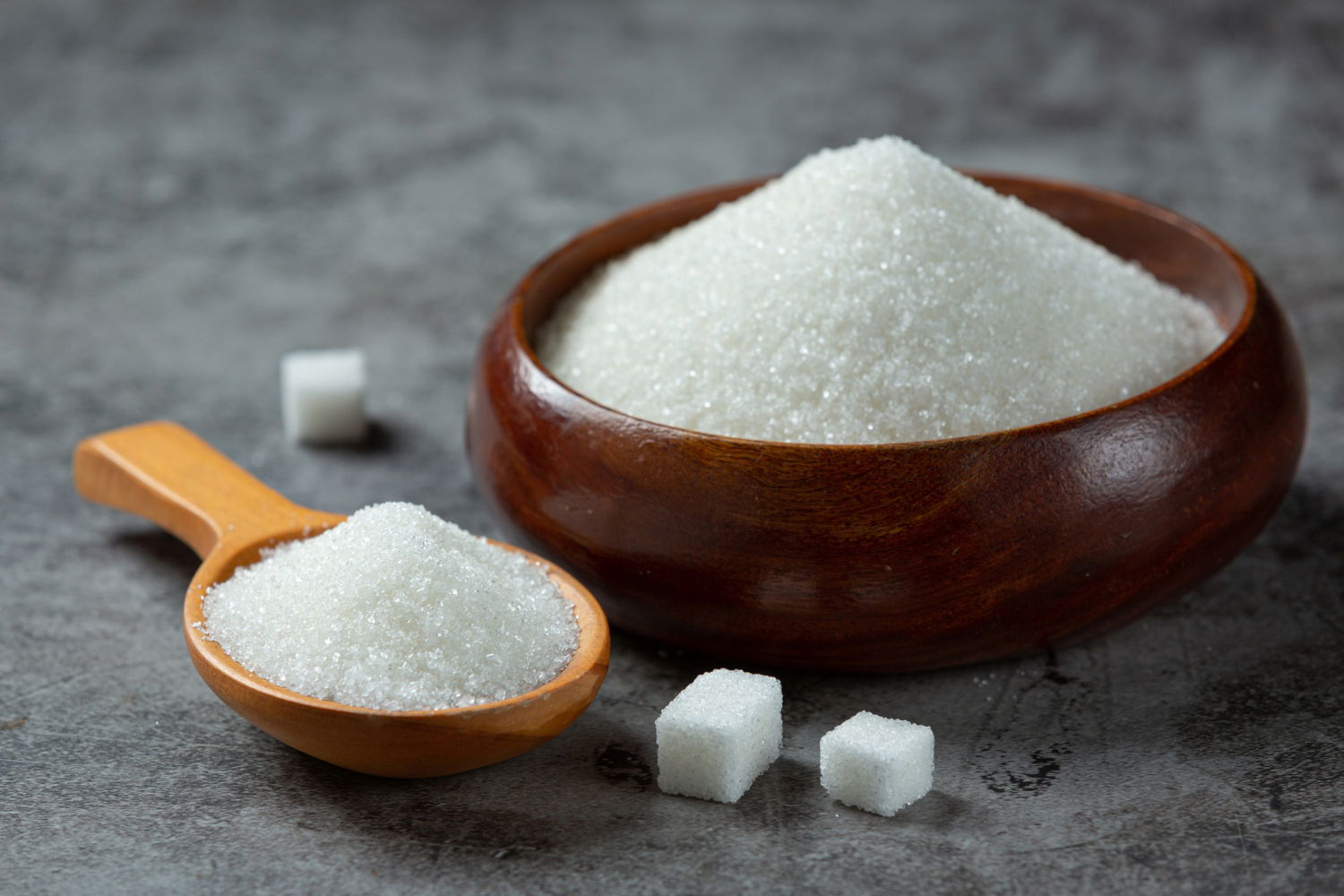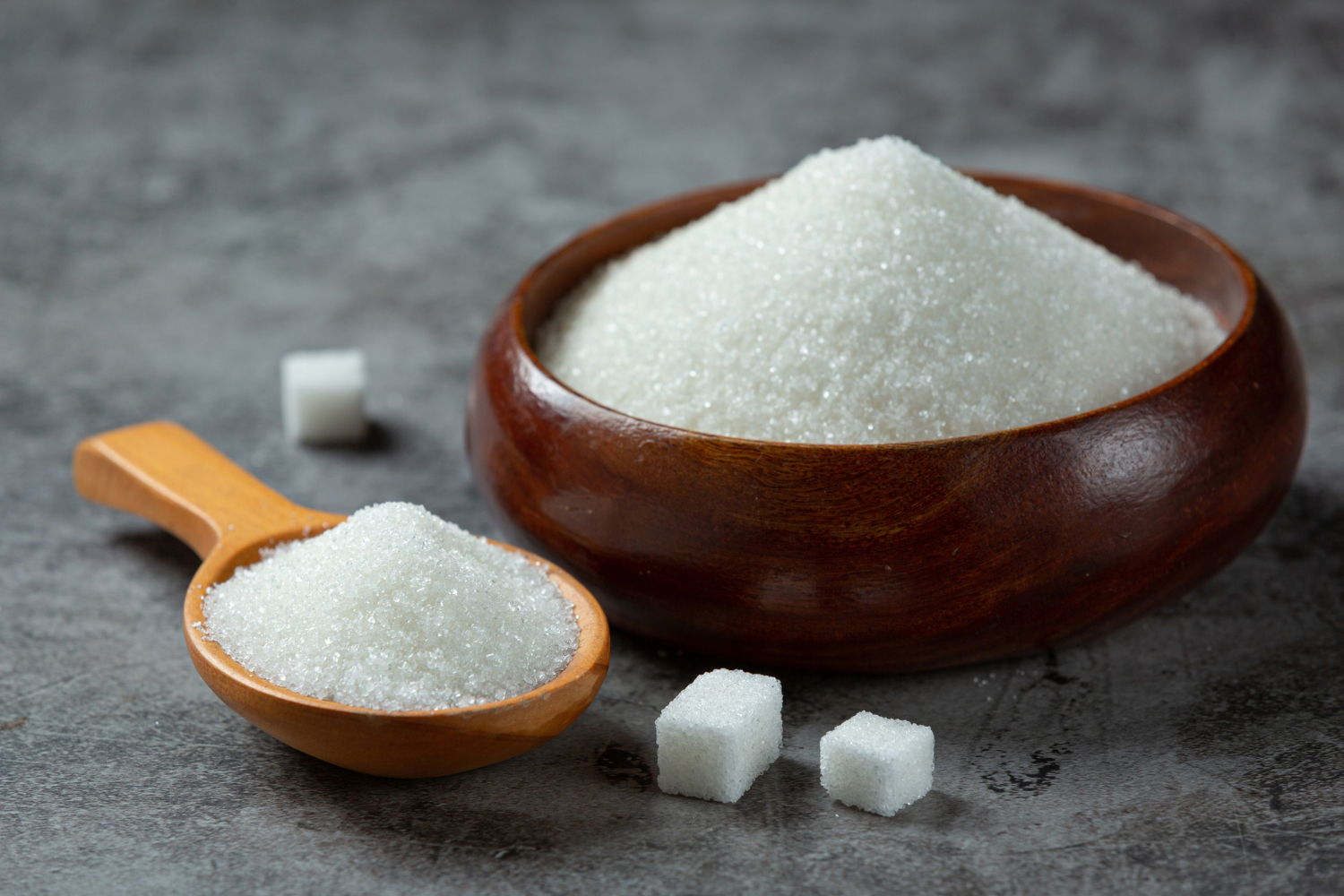Healthy Alternatives to Refined Sugar

Author: Arome David, BSc, MPH, Fellow – Media EIS
Reviewed by: Dr Azuka Chinweokwu Ezeike, MBBS, FWACS, FMCOG, MSc (PH)
Highlights
- Most of the refined sugars are hidden in foods and beverages with different names.
- Nigeria ranks among the top leading sugar-consuming countries in Africa, with an estimated 1.44 metric tonnes of refined sugar consumption.
- Excessive intake of refined sugar is linked to a variety of health complications, such as obesity, diseases, and dental issues.
- Healthy natural alternative sugars have more far-reaching nutritional benefits than refined sugar.
- Despite the health benefits of natural alternative sugars, consumption should be in moderation because they still contain sugar.
- With a switch to healthy natural alternatives, you can still enjoy sweet, tasty foods and beverages that offer healthy nutritional benefits for a better you.
Introduction
The busy schedule of work and other engagements is making many substitutes a healthy diet for ready-made food and beverages loaded with refined sugar. Refined sugar constitutes a major ingredient of popular beverages and food sold in the market. Though they enhance taste and provide quick energy, they lack essential nutrients.The pleasant, sweet taste makes it difficult to let go, rather than stir up desire for more. Most times, people do not realise they consume a lot more of the refined sugar hidden in foods with different names. Refined sugar provides nothing more than energy to the body.
What are natural alternative sugars?
Natural alternative sugars are sweeteners obtained from natural sources such as fruits and honeybees. Examples include honey, date syrup, grapes, etc. What is refined sugar?Refined sugar is a processed form of sugar made from plant sources such as sugarcane and beets. Common examples are white and brown sugar and corn syrup [1].
Differences Between Natural Alternative Sugar and Refined Sugar?
What is Glycaemic Index?
The glycaemic index is the method of numbering or ranking carbohydrate foods to indicate if the food will make glucose levels in our body rise very quickly, moderately, or slowly.Sugars with a low glycaemic index are released slowly into the body, causing blood glucose levels to rise and then fall more slowly than foods that have a higher glycaemic index. If you eat more food with a low glycaemic index, it will be absorbed more slowly and can help even out glucose levels.
Why does reducing refined sugar matter for your health?
Refined sugar, as tasty and refreshing as it is, can harm the human body with excessive consumption it. Research has successfully established a link between excess intake of refined sugar and non-communicable diseases such as obesity, diabetes, and several other adverse health consequences [2]. Excessive consumption of it can trigger the release of dopamine, a brain chemical that makes you feel good. This feel-good experience further stirs up cravings for more sugar, which in turn, over time, leads to sugar addiction [3]Despite this rising associated health threat, consumption remains high. In 2023, Nigeria consumed an estimated 1.44 metric tonnes of refined sugar and ranked among the top leading sugar-consuming countries in Africa, with per capita consumption of 7.1 kg.
Health Risks of Excessive Refined Sugar Intake
Diabetes
Excessive consumption of refined sugar is linked to a host of health complications, such as type 2 diabetes, cardiovascular disease, and dental problems. International organisations like the World Health Organization have consistently, in their reports, highlighted high consumption of refined sugar beverages as a risk factor associated with adverse health outcomes of obesity and type 2 diabetes.A study in the United States has shown that women and men with prolonged consumption of highly refined sugar-containing beverages are prone to a high risk of developing type 2 diabetes [4]. Scientific evidence has consistently shown a connection between high consumption of refined sugar beverages and type 2 diabetes [5, 6].
Cardiovascular Diseases
Frequent intake of refined sugar increases the risk of heart diseases such as stroke, high blood pressure, and atherosclerosis. High blood pressure over time damages arteries and increases the heart's workload, a major risk factor for stroke and heart attack. Several studies have linked excessive consumption of sugary foods to heart disease [7].
Dental Cavities
Refined sugar serves as food for bacteria in the mouth, most especially Streptococcus mutans, harmful bacteria, which feed on it to produce acid. The sticky nature of refined sugar-containing foods prolongs the stay of the acid in the tooth enamel. This sustained acid exposure weakens the enamel, leading to cavities or tooth decay.
Weight Gain and Obesity
Sugary drinks are a prime source of extra calories that can contribute to weight gain and provide no nutritional benefits. Studies indicate that liquid carbohydrates, such as sugar-sweetened beverages, are less filling than solid food, causing people to continue to feel hungry after drinking them despite their high calories. The high calorie sugar content in refined sugar, through several studies, is known to favour obesity and weight gain in the general population. According to the WHO 2020 report, obesity is linked to diseases that are among the leading causes of death globally.
Effects of Excessive Refined Sugar on Mood Swings
The sudden rise and crash of blood sugar levels affect how the brain works. The ups and downs in blood sugar levels often lead to mood changes and anxiety. Research has shown that high consumption of sugar is linked with a higher risk of depression and anxiety among adults.
Effects of Excessive Refined Sugar on Energy Level
Refined sugars, on consumption, are quickly absorbed into the bloodstream, causing a sharp rise in blood sugar level, followed by a drop, which leads to the feeling of tiredness and sluggishness. This is attributed to the lack of fibre, protein, and healthy fat that sustain energy, resulting in unstable blood sugar levels.
Effects of Excessive Refined Sugar on the Skin
Excessive intake of sugar has multiple negative effects on the skin. One such feature is speeding up skin ageing through a process called glycation. The excess sugar gets stuck to skin proteins, collagen, and elastin, which keeps the skin firm, smooth, and stretchy and damages it over time. This leads to wrinkling and sagging skin as well as dullness. Healthy Natural Alternatives
Other healthy natural alternative sugars include:
- Monk fruits
- Brown rice syrup
- Maple syrup
- Applesauce - Apple
The mentioned healthy natural sugars have a low GI
How about Artificial sweeteners
Artificial sweeteners are formulated to be sweeter than refined sugar, with less needed for the same effect. They provide minimal calories and nutrients to the body. Examples include aspartame and saccharin. Aspartame is about 200 times sweeter than refined sugar and is normally used in soft drinks, confectionery items, and medicine. They are considered safe when consumed in moderation within established daily intake limits. There are concerns about potential health risks associated with artificial sweeteners, although this has yet to be fully confirmed.
Tips for Making the Switch Here are some of the tips for switching to healthy, natural alternatives to sugars.
- Gradual changes are better.
- Watch portion size.
- Check for hidden sugars in food and beverage labels that may come with different names
- Prepare your own meals to avoid getting refined sugar-containing foods outside
- Take infused water with fruits like lemon and cucumber as a substitute for soda drinks.
- Eat fresh fruit and raw vegetables as snacks instead of sugary snacks.
- Imbibe moderation, as healthy natural substitutes/alternatives still contain sugar
- Adherence to health guidelines for daily sugar intake as contained in:
The World Health Organization recommends that free sugar intake for adults and children should be less than 10% of the total daily energy intake. It also notes that cutting it further to 5% can offer even greater health benefits.
Conclusion
Although healthy natural alternatives provide a variety of sweet options to refined sugar, there is a need for moderation in overall sugar consumption. With a switch to healthy natural alternatives, you can still enjoy sweet tasty foods and beverages that offer healthy nutritional benefits for a better you. Remember, a healthier you starts with what’s on your plate.
References
1. Arshad S, Rehman T, Saif S, Rajoka MSR, Ranjha MMAN, Hassoun A, et al. Replacement of refined sugar by natural sweeteners: focus on potential health benefits. Heliyon. 2022 Sep 1;8(9). Available at: https://pmc.ncbi.nlm.nih.gov/articles/PMC9519493/
2. Sylva Mareike Schaefer, Kaiser A, Eichner G, Mathias Fasshauer. Association of sugar intake from different sources with cardiovascular disease incidence in the prospective cohort of UK Biobank participants. Nutrition Journal. 2024 Feb 22;23(1). Available at: https://nutritionj.biomedcentral.com/articles/10.1186/s12937-024-00926-4?
3. Witek K, Wydra K, Filip M. A High-Sugar Diet Consumption, Metabolism and Health Impacts with a Focus on the Development of Substance Use Disorder: A Narrative Review. Nutrients. 2022 Jul 18;14(14):2940. Available at: https://www.mdpi.com/2072-6643/14/14/2940
4. Drouin-Chartier JP, Zheng Y, Li Y, Malik V, Pan A, Bhupathiraju SN, et al. Changes in Consumption of Sugary Beverages and Artificially Sweetened Beverages and Subsequent Risk of Type 2 Diabetes: Results From Three Large Prospective U.S. Cohorts of Women and Men. Diabetes care. 2019;42(12):dc190734. Available at: https://pmc.ncbi.nlm.nih.gov/articles/PMC6868459/
5. Tseng TS, Lin WT, Gonzalez GV, Kao YH, Chen LS, Lin HY. Sugar intake from sweetened beverages and diabetes: A narrative review. World Journal of Diabetes. 2021;12(9):1530–8. Available at: https://pmc.ncbi.nlm.nih.gov/articles/PMC8472506/
6. Lara-Castor L, O’Hearn M, Cudhea F, Miller V, Shi P, Zhang J, et al. Burdens of type 2 diabetes and cardiovascular disease attributable to sugar-sweetened beverages in 184 countries. Nature Medicine. 2025 Jan 6. Available at: https://www.nature.com/articles/s41591-024-03345-4#code-availability
7. Dasgupta K, Mussa J, Brazeau AS, Dahhou M, Sanmartin C, Ross NA, et al. Associations of free sugars from solid and liquid sources with cardiovascular disease: a retrospective cohort analysis. BMC Public Health. 2023 Apr 24;23(1). Available at: https://bmcpublichealth.biomedcentral.com/articles/10.1186/s12889-023-15600-3#availability-of-data-and-materials
8. Palma-Morales M, Huertas JR, Rodríguez-Pérez C. A Comprehensive Review of the Effect of Honey on Human Health. A Comprehensive Review of the Effect of Honey on Human Health. 2023 Jul 6;15(13):3056–6. Available at: https://www.mdpi.com/2072-6643/15/13/3056
9. Barakat H, Alfheeaid HA. Date Palm Fruit (Phoenix dactylifera) and Its Promising Potential in Developing Functional Energy Bars: Review of Chemical, Nutritional, Functional, and Sensory Attributes. Nutrients. 2023 Apr;15(9):2134. Available at: https://europepmc.org/article/PMC/10181018
10. Sabra A, Netticadan T, Wijekoon C. Grape bioactive molecules, and the potential health benefits in reducing the risk of heart diseases. Food Chemistry: X. 2021 Dec;12:100149. Available at: https://pmc.ncbi.nlm.nih.gov/articles/PMC8567006/
Disclaimer:
The information provided on this website is for general educational and informational purposes only. It is not intended to replace professional medical advice, diagnosis, or treatment. Always seek the advice of your physician or other qualified health provider with any questions you may have regarding a medical condition.
Published July 11, 2025
